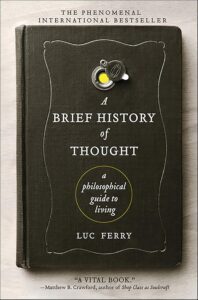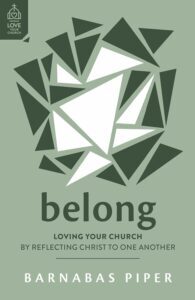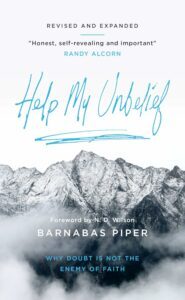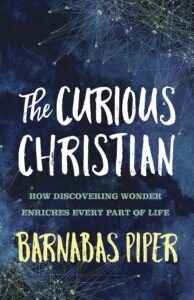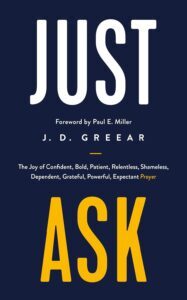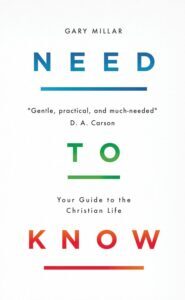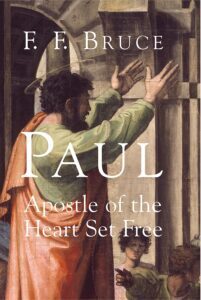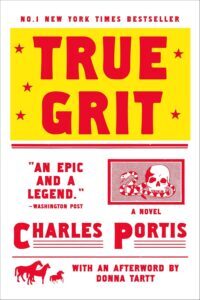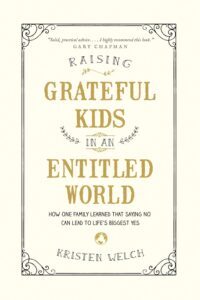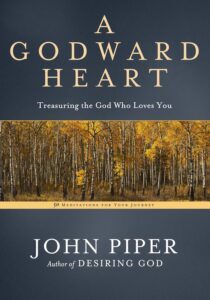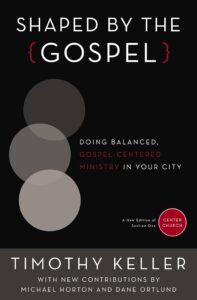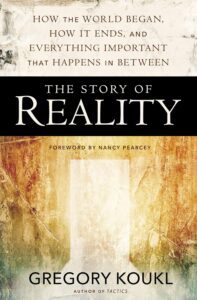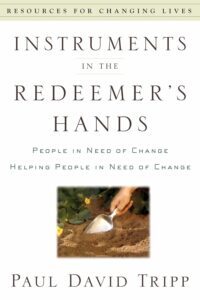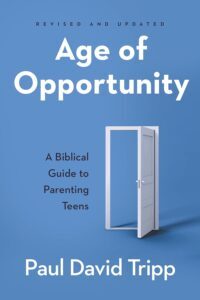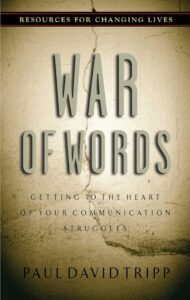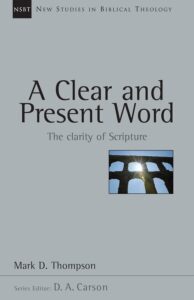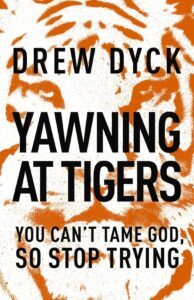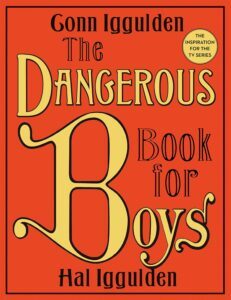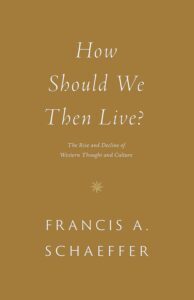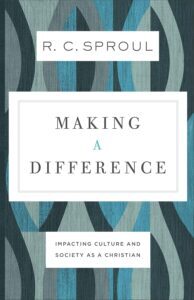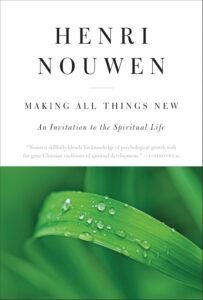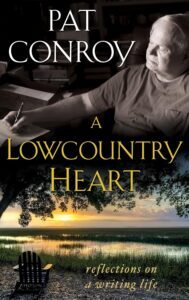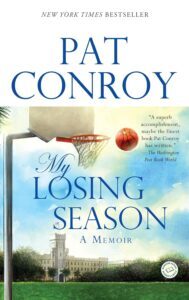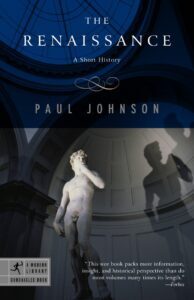Barnabas Piper's Blog, page 11
October 28, 2024
As Far as the East is From the West
Psalm 103:12 – “. . .as far as the east is from the west, so far does he remove our transgressions from us.”
When I was little my older brother and I didn’t always (or ever) get along very well. We were always getting on each other’s nerves and causing a ruckus. This meant that in situations when we needed to be calm and quiet–like church–my mom usually had to separate us by sitting between us, one on her right and one on her left.
For a long time that’s what I pictured when I read this verse. God put us on one side (east) and our sin on the other (west). “As far as the east from the west” sounded like “within reach to grab an ear and give it a twist.” I didn’t understand the image of this passage.
God doesn’t just separate us from our sins, he does so completely and irreversibly. Our sins are not within arms reach or accusation’s reach. East and west aren’t adjacent; they are infinitely opposite. When Christ paid for our sins on the cross he sent our sins completely and eternally in one direction and He is taking us eternally in the other.
I originally wrote this post for my church, Immanuel Nashville , in our Daily Pulse email. If you want encouragement from God’s word delivered Monday thru Friday to your inbox, I encourage you to subscribe.
October 25, 2024
3 Things I Like – October 25
Each week (give or take one or two here and there) I share three things I like – It could be a book, a movie, a podcast, an album, a photo, an article, a restaurant, a food item, a beverage, or anything else I simply enjoy and think you might too. You can find a whole pile of things, especially books, I like and recommend HERE.
1. Moleskine NotebooksI love Moleskine notebooks. I use one for jotting down notes for writing projects, one for meeting notes at work, and one for journaling. Why these slightly more expensive ones instead of any old bound notebook? Why these instead of some other high end German engineered writing receptacle? I could argue their quality; they are nicer than most other notebooks. The paper is of just the right weight not to bleed through and just absorbent enough not to let ink smear. Really, though, it’s psychological. One wears a suit to dress for success. New shoes make one feel faster. So a Moleskine makes users feel like a writer or a creator a journaler. You don’t get that from spiral bound or composition notebooks. You don’t get that from legal pads. Those feel like homework or meeting notes, and they feel disposable. Moleskines feel like you’re writing in an artifact worth keeping and revisiting.
2. Baleaf Workout Clothes
 I’m 41 years old and would like to live several more decades in relatively good health. As such, I try to stay active and workout with some regularity. I do not, however, like spending money on high end fitness gear. I want comfort, a good fit, and the ability to absorb/wick sweat. I have tried any number of inexpensive brands and generally find them to be exemplary of the adage “you get what you pay for.” A few years ago I found Baleaf, and it checks all the boxes–budget friendly, light weight, good quality, good fit. You can tell it’s not high end, but the clothes are dramatically better than the cheap stuff.
I’m 41 years old and would like to live several more decades in relatively good health. As such, I try to stay active and workout with some regularity. I do not, however, like spending money on high end fitness gear. I want comfort, a good fit, and the ability to absorb/wick sweat. I have tried any number of inexpensive brands and generally find them to be exemplary of the adage “you get what you pay for.” A few years ago I found Baleaf, and it checks all the boxes–budget friendly, light weight, good quality, good fit. You can tell it’s not high end, but the clothes are dramatically better than the cheap stuff.
3. On Writing Well by William Zinsser
 My favorite book on writing is Stephen King’s On Writing: A Memoir of the Craft, but Zinsser’s book might be the best in terms of instruction to helping a writer get better. King’s is a rolicking good time and generally captivating. Zinsser’s is the work of a professor who wants to see his students excel at the craft of writing and expects them to do so. As a prolific writer of many genres and styles and on many subjects, Zinsser brings all his considerable knowledge and effort to bear in this book. It is practical, pointed, and lays out clear examples of both excellent and poor writing. It is the kind of book that is enjoyable to read for people who love the craft of writing but is helpful to read for anyone who has to do any writing. It is excellent and should be revisited
My favorite book on writing is Stephen King’s On Writing: A Memoir of the Craft, but Zinsser’s book might be the best in terms of instruction to helping a writer get better. King’s is a rolicking good time and generally captivating. Zinsser’s is the work of a professor who wants to see his students excel at the craft of writing and expects them to do so. As a prolific writer of many genres and styles and on many subjects, Zinsser brings all his considerable knowledge and effort to bear in this book. It is practical, pointed, and lays out clear examples of both excellent and poor writing. It is the kind of book that is enjoyable to read for people who love the craft of writing but is helpful to read for anyone who has to do any writing. It is excellent and should be revisited
Kindle Deals for October 25
Some Kindle deals worth your mind and money today:
A Brief History of Thought: A Philosophical Guide to Living by Luc Ferry – $3.99
Personal Memoirs of Ulysses S. Grant: Volumes One and Two – $5.99
The Righteous: The Unsung Heroes of the Holocaust by Martin Gilbert – $1.99
Socrates: A Man for Our Times by Paul Johnson – $4.99
George Harrison: The Reluctant Beatle by Philip Norman – $1.99
A Serial Killer’s Daughter: My Story of Faith, Love, and Overcoming by Kerri Rawson – $2.99
World Travel: An Irreverent Guide by Anthony Bourdain – $2.99
MY BOOKS:Belong: Loving Your Church by Reflecting Christ to One Another – $8.99
The Pastor’s Kid: What it’s Like and How to Help – $8.99
Help My Unbelief: Why doubt is not the enemy of faith – $8.99
The Curious Christian: How Discovering Wonder Enriches Every Part of Life – $4.99
Hoping for Happiness: Turning Life’s most elusive Feeling into Lasting Reality – $8.99
These links are Amazon affiliate links.
October 24, 2024
Kindle Deals for October 24
Some Kindle deals worth your mind and money today:
Just Ask: The Joy of Confident, Bold, Patient, Relentless, Shameless, Dependent, Grateful, Powerful, Expectant Prayer by J.D. Greear – $3.99
Women of the Word: How to Study the Bible with Both Our Hearts and Our Minds by Jen Wilkin – $5.64
Need to Know: Your Guide to the Christian Life by Gary Millar – $2.99
Paul: Apostle of the Heart Set Free by F.F. Bruce – $3.99
The Lord and His Prayer by N.T. Wright – $3.99
Jesus Storybook Bible: Every Story Whispers His Name by Sally Lloyd-Jones – $1.99
True Grit: A Novel by Charles Portis – $1.99
City of the Century: The Epic of Chicago and the Making of America by Donald L. Miller – $2.99
The Prize: The Epic Quest for Oil, Money & Power by Daniel Yergin – $1.99
The Anatomy of Fascism by Robert O. Paxton – $4.99
Joe DiMaggio: The Hero’s Life by Richard Ben Cramer – $3.99
MY BOOKS:Belong: Loving Your Church by Reflecting Christ to One Another – $8.99
The Pastor’s Kid: What it’s Like and How to Help – $8.99
Help My Unbelief: Why doubt is not the enemy of faith – $8.99
The Curious Christian: How Discovering Wonder Enriches Every Part of Life – $4.99
Hoping for Happiness: Turning Life’s most elusive Feeling into Lasting Reality – $8.99
These links are Amazon affiliate links.
October 23, 2024
Kindle Deals for October 23
Some Kindle deals worth your mind and money today:
Raising Grateful Kids in an Entitled World: How One Family Learned That Saying No Can Lead to Life’s Biggest Yes by Kristen Welch – $3.99
A Godward Heart: Treasuring the God Who Loves You by John Piper – $4.99
Abba’s Child: The Cry of the Heart for Intimate Belonging by Brennan Manning – $3.99
Extraordinary Hospitality (for Ordinary People): Seven Ways to Welcome Like Jesus by Carolyn Lacey – $2.99
Shaped by the Gospel: Doing Balanced, Gospel-Centered Ministry in Your City by Tim Keller – $1.99
The Story of Reality: How the World Began, How It Ends, and Everything Important that Happens in Between by Gregory Koukl – $1.99
What’s Wrong with the World by G.K. Chesterton – $1.99
The Everlasting Man by G.K. Chesterton – $1.99
The Scarlet Letter: A Guide to Reading and Reflecting by Karen Swallow Prior – $4.99
Ghosted: An American Story by Nancy French – $2.99
Life by Keith Richards – $2.99
MY BOOKS:Belong: Loving Your Church by Reflecting Christ to One Another – $8.99
The Pastor’s Kid: What it’s Like and How to Help – $8.99
Help My Unbelief: Why doubt is not the enemy of faith – $8.99
The Curious Christian: How Discovering Wonder Enriches Every Part of Life – $4.99
Hoping for Happiness: Turning Life’s most elusive Feeling into Lasting Reality – $8.99
These links are Amazon affiliate links.
Kindle Deals for Ocotober 23
Some Kindle deals worth your mind and money today:
Raising Grateful Kids in an Entitled World: How One Family Learned That Saying No Can Lead to Life’s Biggest Yes by Kristen Welch – $3.99
A Godward Heart: Treasuring the God Who Loves You by John Piper – $4.99
Abba’s Child: The Cry of the Heart for Intimate Belonging by Brennan Manning – $3.99
Extraordinary Hospitality (for Ordinary People): Seven Ways to Welcome Like Jesus by Carolyn Lacey – $2.99
Shaped by the Gospel: Doing Balanced, Gospel-Centered Ministry in Your City by Tim Keller – $1.99
The Story of Reality: How the World Began, How It Ends, and Everything Important that Happens in Between by Gregory Koukl – $1.99
What’s Wrong with the World by G.K. Chesterton – $1.99
The Everlasting Man by G.K. Chesterton – $1.99
The Scarlet Letter: A Guide to Reading and Reflecting by Karen Swallow Prior – $4.99
Ghosted: An American Story by Nancy French – $2.99
Life by Keith Richards – $2.99
MY BOOKS:Belong: Loving Your Church by Reflecting Christ to One Another – $8.99
The Pastor’s Kid: What it’s Like and How to Help – $8.99
Help My Unbelief: Why doubt is not the enemy of faith – $8.99
The Curious Christian: How Discovering Wonder Enriches Every Part of Life – $4.99
Hoping for Happiness: Turning Life’s most elusive Feeling into Lasting Reality – $8.99
These links are Amazon affiliate links.
7 Reasons I’m Thankful for My Pastor Dad
I’ve written before–and firmly believe–that pastors’ kids want a parent more than a pastor. I spent my entire upbringing as a PK to John Piper, and I’m now raising three PKs, so this axiom sits very much at the forefront of my mind. Aspects of ministry can easily contend with pastoral family life and even drive a wedge between a pastor and his kids. But rather than harp on the potential pitfalls of pastoring and belabor warnings, I want to encourage pastors in their relationship with their kids by reflecting on seven things I’m thankful my pastor dad exemplified. I can’t say I was thankful for all these things during my younger years, both because of my immaturity and because I didn’t understand all it takes to parent and pastor. But God has been kind to bring me to a place of deep gratitude for my father—both as a dad and pastor.
1. He was faithful to Scripture.My father is pathologically incapable of preaching a sermon that is not drawn from the Bible and points back to the Bible. He would tell you he isn’t clever enough to come up with something truer than God’s words, and there isn’t anything better on which to base our lives. When he’s asked complex questions about areas of life in which he is not an expert (finances, politics, etc.), he doesn’t pretend to be an expert. He goes back to the wisdom God gives in his Word.
And he’s always been the same at home. When I needed correcting as a teen, dad would direct me with Scripture, applying both the warnings and the promises. As I seek counsel now as an adult, he draws on the Bible. When we’re parting ways after a visit, he covers the time in biblical promises and prayer. There was a time I rolled my eyes at this and even resented it. I wanted the “wisdom of man,” but Dad knew that the “foolishness of God” was infinitely better (1 Corinthians 1:25
2. He extended help and hospitality.My dad is an introvert’s introvert. If he had his marriage, his books, and his breakfast cereal, he might be content until he meets Jesus. But he makes time for people. The home I grew up in, and where my parents still live, is on a busy urban street corner, so people knocking on the door to ask for help or to spin a yarn about a crisis they were in was common. Dad would listen to them, even when it was clear they were trying to hustle him, and offer tangible help in whatever way seemed wisest. After Sunday services he would linger to talk and pray until the line of people was gone. We had guests in our home for dinner often. As I think about this now, it seems both normal and extraordinary. Dad didn’t let his personality preferences dictate what was good, fruitful, and loving. He sacrificed energy and time for people.
3. He studied diligently.I never heard my dad give a half-baked sermon. I’m sure he was rarely satisfied with his sermons, but he didn’t cheat the text or the congregation. If time for sermon preparation one week was short due to other obligations, he sacrificed sleep (and surely increased prayer). There are pastors with brilliant, lightning-fast minds who can absorb and coalesce information lickety split. By his own admission, my dad is more the tortoise than the hare when it comes to reading and studying. He couldn’t cut corners or procrastinate, but rather developed habits of diligence. He accumulated understanding and knowledge bit by bit over years. As one who is disposed to procrastinate and rely on what little store of natural gifts I have, his example has been both motivating and corrective for me in ministry.
4. He made time to play.Few people who know my dad would call him “light-hearted” or “comedic.”He is intense—a serious-minded man and minister. His mind tilts toward pondering (and maybe being ponderous) rather than wit and humor. None of that, however, stopped him from making time to play with me and my siblings when we were kids. Most days of the week, after dinner, we would have designated playtime—sports, wrestling, playing with toys, board games, etc. When we were on family vacations, which were rarely lavish affairs, he would take us fishing, exploring, or on some other adventure. And now he does the same thing with his grandkids.
5. He read, read, and read some more.We didn’t have a TV when I was growing up. This wasn’t out of some fear-of-the-devil’s-influence conservatism by my parents but largely because, if we had a TV, we would watch it. And in their estimation, there were better ways to spend time. One of the primary “better ways” was with books. Our house was loaded with them. When my dad had downtime, you could invariably find him with a book and a pencil. When I claimed boredom, my parents would basically point to the back door or to a bookshelf. This was great for my mind and curiosity, but it also taught me that leaders are readers and that to be a wise, informed minister of the gospel, one needs to read deeply and widely.
6. He developed healthy habits.Dessert was always a hit in our house, and my dad relished it as much or more than anyone. He is hardly a health nut and is very good at appreciating delicious things. But for as long as I can remember he has been a man of moderation (except as it pertains to diet Dr. Pepper) and a man of physical discipline. Dad runs multiple times per week, even now. He isn’t trying to win races or earn a sticker for the bumper of his car. He is being healthy, recognizing that a person is body, mind, and soul.
In the 80s and 90s, when I was growing up, there wasn’t much talk about mental health or healthy rhythms, but my dad knew that to sustain his whole self for a lifetime of ministry (and for a healthy marriage), he needed rest. So each week he took a firm day off in which he did nothing for the ministry, instead focusing on time with my mom and resting. And each summer we would take several weeks away as a family. I know now what I didn’t then: healthy habits and rhythms of rest are hard for pastors. But he did them with metronome-like consistency and our church and family benefitted.
7. His default was to pray.Just a few weeks ago my parents visited us in Tennessee from Minnesota. While they were here, I asked my dad about leading a growing church and wisely handling big transitions. He had helpful practical advice about budgets, communication, and member care, but one thing he said stood out above the rest: when you’re not sure, pray. He was describing how the elders should lead, but I realized that’s how he navigated all of life and led our family. This practice guided our family at every step, and it guides his life now. It was a gift to be raised by parents who treated prayer as real, effective, and powerful even if I was not always enamored with it. As I now pastor a growing church and a growing family, I am even more grateful for their example and for their ongoing prayers on our behalf.
October 22, 2024
Kindle Deals for October 22
Some Kindle deals worth your mind and money today:
Instruments in the Redeemer’s Hands: People in Need of Change Helping People in Need of Change by Paul Tripp – $4.99
Age of Opportunity, Revised and Expanded: A Biblical Guide to Parenting Teens by Paul Tripp – $4.99
War of Words: Getting to the Heart of Your Communication Struggles by Paul Tripp – $4.99
Forever: Why You Can’t Live Without It by Paul Tripp – $1.99
A Clear and Present Word: The Clarity of Scripture by Mark D. Thompson – $2.99
Agents of Grace: How to Bridge Divides and Love as Jesus Loved by Daniel Darling – $1.99
Yawning at Tigers: You Can’t Tame God, So Stop Trying by Drew Dyck – $1.99
The Dangerous Book for Boys by Conn & Hal Iggulden – $2.99
MY BOOKS:Belong: Loving Your Church by Reflecting Christ to One Another – $8.99
The Pastor’s Kid: What it’s Like and How to Help – $8.99
Help My Unbelief: Why doubt is not the enemy of faith – $8.99
The Curious Christian: How Discovering Wonder Enriches Every Part of Life – $4.99
Hoping for Happiness: Turning Life’s most elusive Feeling into Lasting Reality – $8.99
These links are Amazon affiliate links.
October 21, 2024
Kindle Deals for October 21
Some Kindle deals worth your mind and money today:
The C. S. Lewis Collection: Signature Classics and Other Major Works by C.S. Lewis – $3.99 (Includes Mere Christianity, The Screwtape Letters, The Great Divorce, The Problem of Pain, Miracles, A Grief Observed, The Abolition of Man, The Four Loves, Reflections on the Psalms, Surprised by Joy, Letters to Malcolm)
How Should We Then Live?: The Rise and Decline of Western Thought and Culture by Francis Schaeffer – $6.99
Making a Difference: Impacting Culture and Society as a Christian by R.C. Sproul – $3.99
Making All Things New: An Invitation to the Spiritual Life by Henri Nouwen – $1.99
How to Read Literature Like a Professor Revised: A Lively and Entertaining Guide to Reading Between the Lines by Thomas Foster – $1.99
A Lowcountry Heart: Reflections on a Writing Life by Pat Conroy – $4.99
My Losing Season: A Memoir by Pat Conroy – $4.99
Once There Was a War by John Steinbeck – $4.99
The Renaissance: A Short History by Paul Johnson – $4.99
The Afghan Campaign: A novel by Steven Pressfield – $6.99
MY BOOKS:Belong: Loving Your Church by Reflecting Christ to One Another – $8.99
The Pastor’s Kid: What it’s Like and How to Help – $8.99
Help My Unbelief: Why doubt is not the enemy of faith – $8.99
The Curious Christian: How Discovering Wonder Enriches Every Part of Life – $4.99
Hoping for Happiness: Turning Life’s most elusive Feeling into Lasting Reality – $8.99
These links are Amazon affiliate links.
What Sort of Man is This?
Matthew 8 tells one of my favorite stories about Jesus. He and his disciples get in a boat to sail across the Sea of Galilee. Jesus is tuckered out from preaching and healing and ministering, so he falls asleep. While he’s sleeping a storm sweeps in, threatening to drown them all. The disciples wake Jesus in a panic and ask him to save them. With a word he calms the storm. And then we get to my favorite verse, 8:27: “And the men marveled, saying, “What sort of man is this, that even winds and sea obey him?”
This is exactly the right question to ask about Jesus. In fact, this is the question we should be moved to ask over and over again.
What sort of man is this who fulfills the law and the prophets? (Matthew 5:17)
What sort of man is this who befriends sinners? (Matthew 11:19)
What sort of man is this who prays for his followers? (John 17)
What sort of man is this who lays down his life for his sheep? (John 10:11)
Every encounter we have with Jesus in the Bible should stir our hearts to ask what sort of man is this. And every answer we find will only lead us deeper into wonder and awe at him.
I originally wrote this post for my church, Immanuel Nashville , in our Daily Pulse email. If you want encouragement from God’s word delivered Monday thru Friday to your inbox, I encourage you to subscribe.


